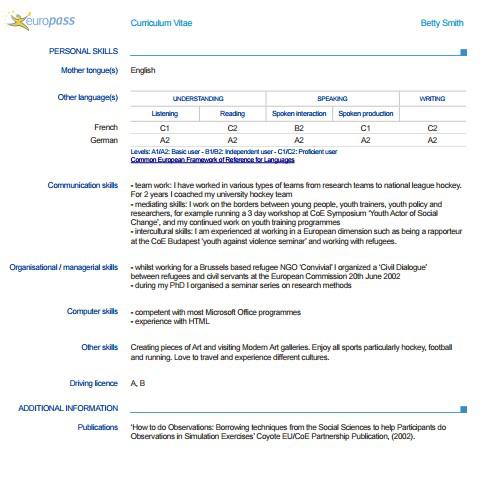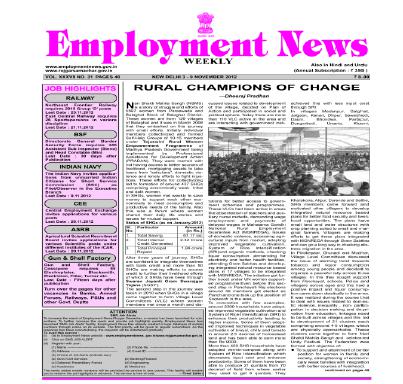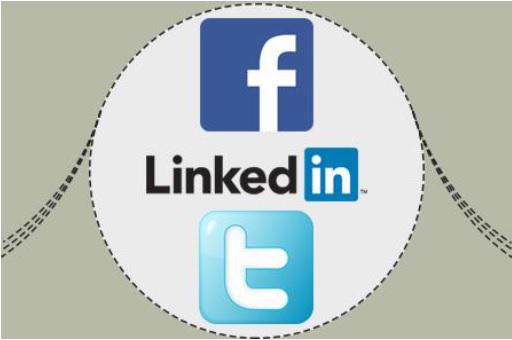Job Search Skills - Quick Guide
Job Search Skills - Introduction
In today’s competitive world, job search is a challenging task. During such a phase, various intimidating questions keep on rebounding in your brain such as where to find a suitable job, how to get a lead, how to develop an impressive resume and cover letter, whom to contact, what and how to prepare for the interview, etc. To get the right answers, it requires a deep research and an intelligent strategy.
This chapter answers these questions and suggests the right way to develop job search skills. All you need to do is follow the following steps −
Self-Introspection
Self-introspection is the most fundamental question to deal with. Behavioral School of Psychology suggests that much of our behavior is influenced by self-concept. Therefore, you have not only to introspect yourself carefully, but also need to do it very honestly.

However, it is a very difficult task to ask the right question to yourself and get the right answer. But there is no reason to be alarmed; simply following the steps described in this tutorial and honestly doing the exercises given at the end of the tutorial will help immensely. Answer the following questions −
- Who you are?
- What you want to be/what is your goal?
- What are the skill sets you have acquired?
- What are your values?
- What type of work do you enjoy doing?
- What are the strengths you have to attain your goal?
- What are the weaknesses that might be a potential impediment for you?
Self-Realization
Once you answer these questions honestly, you realize the real picture of your potential. Self-realization will help you greatly to further strengthen your concept and improve your goal-oriented skill sets.
Self-realization is such an that helps in every point of your life, irrespective of your age and sex.
Self-Motivation
Once you introspect and realize your potential, it will become a source of motivation. Without self-motivation, it is very difficult to do even a simple task.
Possibly, you may face rejection, setback, financial crisis, etc., but don’t get discouraged rather keep yourself motivated. Self-motivation is the ultimate Goal Setting mantra (key) to success (watch the following video).
Job Search Skills - Goal Setting
Once there is self-realization, the next step is to set your goal. We will discuss in this chapter the importance of setting achievable goals.
What is a Goal?
A goal is your ultimate wish, desire, dream, and source of happiness that you want to attain. Goal can be decided only after thorough self-introspection. Remember, don’t keep any confusion at this point, and don’t make any error because all your activities will be solely goal oriented. Any mistake can cause a big problem for you.

What is an Ideal Goal?
Before you set a goal, you need to pay attention to the following points. It will help you to choose a right and achievable goal −
Specific − Your goal has to be specific. No confusion should remain in your mind. Once you set this, make a resolution to achieve it at any cost. For example, if your goal is to work for the Apple Company or be a CIA agent, stick with it.
Measurable and Achievable − Your goal should not be abstract; it must be decided only after an analysis of your wish, skill sets, your education, and immediate circumstances. So that you can visualize your goal and can make the right strategy to achieve that. For example, you are a very good management student, but also like basketball; you have very good knowledge of basketball game, but you never played. In such a situation, do not get confused, basketball is your likeness, but your expertise lies in management area.

Relevant − Some goals are of such kind that it is fascinating for certain period of time, but later on loses its relevancy. For example, generally an athlete girl cannot pursue her goal for a long time; future circumstances post marriage might create many problems in her personal as well as professional life.
Time Framework − You have to fix a time period to attain your goal.
Job Search Skills - Resume Writing
No matter how smart you are until it properly reflects on your resume your skills will go unnoticed, because employers first see your resume not you. Therefore, being selected for an interview totally depends on your resume.

What is Resume Writing?
Resume Writing is writing about your personal and professional achievements in chronological order on a piece of paper. Since, this the first and the most important aspect of job search, your professionalism and skills have to be reflected on your resume. The language that you use on your resume should be simple, brief, and clear.
Elements of a Resume
Every resume has the following essential elements (without which it is incomplete) −
Personal Data − It includes your name, address, and contact details (email ID and phone number).
Career Objective − Mention your career objective in such a way that explains how you will meet the demand of the job that you are applying for.

Employment History − No matter how versatile your work experience is - Write only the relevant work experience, which is in the interest of the company where you are applying. For example, if you are applying for the computer programming job, you write only the computer related work experience. Though, you have also worked as a salesperson, do not mention this because your sales experience is not at all relevant for the computer programming job. It might create a negative impression.
Education − Mention all your educational qualifications including name of the programs/diploma, subjects, grade, passing year, schools/institutions name.
Optional Information − It includes your other skill sets such as technical skills, and projects (that you have handled) relevant to the job and some other achievements including award and recognitions. For example, you are a state/national level sportsman, etc.
Personal Information − It includes personal details, such as sex, religion, marital status, etc. which is not mandatory to mention. Hence, it can be skipped.
Hobbies − Not imperative, but worth mentioning on your resume. Many companies across the world consider it positively.
References − Put at least two persons’ name, designation, address, contact details, and your relationship with them. Mention only those people who know you very well and can speak positively about you; preferably, your professor or your boss from a previous company or one from each category.
Chronological Order − Your work experience and education should be arranged in chronology. You need to start with the current job and the last study program and then previous that and so on.
However, for detailed information, check the tutorial "Effective Resume Writng".
How to Deal with Awkward Points on Resume?
Awkward points on your resume refers to employment gaps or short stints during your career span. You have to be very careful while mentioning these in your resume.
It is suggested to acknowledge gaps in employment in such a manner so as to not create a negative impression. This can be done by being honest and mentioning the reason for gap. If you did some volunteer work or took up a course to enhance your skills during the gap, it is always worth mentioning in your resume. However, it is advised to always do away with short stints in jobs. Mentioning these suggests instability.
Organizing Your Resume
Once you complete your resume, do not forget to −
- Review it.
- Check it twice (to see if all the points included are in order).
- Organize it (to check in terms of order, font, color, spacing, etc.).
Job Search Skills - Format of Resume
As such, there is no specific format of a resume; largely, it depends upon the nature of job you are applying for. Further, it also varies greatly from one geographic region to another. For example, America has totally different style of resume writing in comparison to Europe and Asia.
Following are a few samples that will help you develop a proper resume −
Resume Format in European Countries
europass' is one of the most preferred sources to develop resume for European countries −


Resume Format in America

Resume Format in India

Job Search Skills - Cover Letter
The main purpose of a cover letter is to convince an employer to know more about you and check out your resume. It is as important as your resume.

What is Cover Letter?
Cover letter is an introductory remark that generally accompanies the resume. It captures the recruiter’s/employer’s attention. So, it is an opportunity for you to stand out from the crowd and fascinate the employer to call you for an interview.
Features of a Cover Letter
Following are the salient features of a cover letter −
Personalized − Necessarily address a specific person in your letter. However, if you do not know whom to address, then research about the company/organization and find the concerned person.
Relevant − Research the company thoroughly and collect the information so that you can co-relate your experience and qualification with the company’s work and vision/mission. And, understand the role well that you are applying for.

Persuasive − Convey how your acquired skills, experience, and qualification distinctively qualify you for the position. Explain why and how you fit the profile and commit how you could be beneficial for the company.
Brief and Precise − Your cover letter should be brief and clear. You should limit your cover page to one page (roughly 300 to 350 words). While doing this, also ensure that you maintain the professional pitch in your language.
Reviewed − Even a minor error can spoil your all efforts. Therefore, before you click on ‘send’ do not forget to proofread it twice or thrice. Ensure it is free from grammar and spelling errors.
Elements of a cover letter

Salutation/Greeting − Preferably, address by a particular name. Remember, do not use the first name rather use the last name. For example, if the name is Richard William, then address like Dear Mr. William.
The Body − Start with the position you are applying for and how you came to know about it. And then describe yourself such as your qualification, experience, and other skills and achievements. Further, write the relevancy of your expertize and company’s requirements.
Closing Paragraph − Inform the employer about your availability for a personal interview. Remember, always close your letter by thanking the addressee for his/her time and consideration.
Format of a Cover Letter
Following is an ideal format of a cover letter recommended by “American University −

Job Search Skills - Portfolio
Portfolio is the collection of one’s best work samples and experience in an artistic way. It is a great way to describe yourself to a prospective employer and prove your capability. However, a portfolio is not necessarily required for all professionals; for example, a person of an IT field, normally does not need to create a portfolio, but professionals related of fashion technology, architect, photographer, etc. essentially need to create their portfolio.

The Need for Portfolio
Normally, neither will you have the time to filter and explain your all important projects nor an employer will have time to listen to you for long. Therefore, the best way to describe your work experience and achievements is to create a portfolio.
A smartly and artistically created portfolio is a substantial attraction and helps to convince the prospective employer to think about you.
Essentials of Portfolio
Following are some of the important features of a portfolio −
- Properly indexed.
- Information in order.
- Important points highlighted.
- Font and color perfectly matched.
- Only relevant images used and placed properly.
- Compact structure and not bulky.
- Overall balance in look and quality.
Job Search Skills - Where to Search
Once, you are ready with your job search kit, which includes your resume, cover letter, and portfolio (if required), then the next strategy is to search for the vacancy of your interest.

where to Search?
There are various sources where you can get the job vacancies; important of them are −
Newspaper Classified & Supplements
Every newspaper has a classified section for jobs. Some newspapers have supplements in which vacancies for jobs are advertised. Such supplements are usually published once a week. Find the day and follow up.

Employment News
Employment news is a weekly/fortnightly/monthly job newspaper. It gives details of all sorts of job vacancies including public/government and private sector jobs.

Internet
There are dozens of job portal websites on the Internet these days; all you need to do is create your profile on some of the popular job portal websites, browse through the jobs, apply and keep your eyes on the email inbox.

Social Networking Sites
You can build compelling profiles on various social media websites to look for a job of your choice. Earlier, only LinkedIn was thought to be the obvious place to connect for jobs; however, recently this kind of platform is also provided by Facebook, Twitter and Google+.

Friend’s Reference
Let friends know that you are hunting for a job. Ask them to let you know if there is any compatible opening in their company.
Make a List of Relevant Companies
Prepare a list of all relevant companies where you think you can fit. Browse through their career section on the website and see if there is any vacancy of your interest.
Consultancy
Contact consultancy agencies and other job support groups with your updated resume.
Job Search Skills - Interview
Now you are at a stage where interview calls keep flowing in. Interviews can be a nerve-wrecking experience for many, so it is always good to be thoroughly prepared to minimize the chances of failure or disappointment.

Preparing for an Interview
You need to make an interview strategy and for this, you need to pay attention to the following points −
Keep Your Documents Ready
Get two photocopies of all the documents that the company has asked for such as your degree certificates, experience certificates, resume, ID proof, photograph, etc.
Research about the Company
Research and read in detail about the company - what is the company all about, what are the services it offers, about its client base, market, annual turnover, employees, etc. Be sure to check on your job role too.
Rehearsal
Before attending the interview, rehearse for two or three times. Check your voice, intonation, diction, etc. Assume probable questions, most likely which can be asked and prepare a balanced answer. This will help you face the actual interview confidently.

Prepare Yourself
Your attire gives the first impression. Dress to impress. Wear formals. Choose colors that make you feel confident. Take care to groom yourself well. Avoid wearing too many accessories and those that are meant for party wear are a complete no-no. Use cologne or perfume sparingly. Last but not the least, always be on time. You can reach the interview venue a little ahead of time schedule but being late for an interview is never advisable.
In the Interview Room
Remember, the key to your success lies in your ability to communicate smartly and reflect a confident appearance. So, in the interview room, you must indicate that you are −
- Relaxed and confident
- Enthusiastic
- Flexible
- Humble
- Eager to face the challenges
- Ready to take risk
- Willing to improve your skills
While Answering the Questions
Approach your prospective employer/interviewer with respect.
Be pleasant and friendly.
Make a good start.
Maintain eye contact.
Do not slouch in your chair. Don’t get nervous.
Remain calm and composed with a smile on your face.
Show interest that you are always open for the new lesson and ready to learn.
Answer questions professionally, but honestly. Do not be dishonest or try to mislead.
Give specific answers and do not answer more than required.
Use simple language while answering.
If you don’t know the answer to any question, rather than giving false or indirect answer, politely make it clear that you don’t know the answer.
Do not get anxious on any sort of question, rather remain courteous and polite throughout your interview.
Reply politely even to tricky and irritating questions.
While leaving, remember to thank the interviewers for the opportunity.
Job Search Skills - Exercise
The following exercise will help you identify and develop your professional skills and choices; all you need to do is – read and answer them correctly and honestly −
What are the five values or satisfaction levels important for you?
1.
2.
3.
4.
5.
Why are these values important to you?
What are the things that you want to avoid being in a job?
What is it that you are expecting from your new job?
What level of opportunity are you looking for (learning, advanced, or money-oriented)?
What is your plan – are you ready to travel/relocate or do you want a job in a specific location?
Can you relocate if you get a very good opportunity?
What is most important for you – salary, location, position, company, or something else (please specify)?
What are the types of jobs where you can use your strengths?
Make a list of the companies, which offer such kind of jobs.
Do you need any training to prepare yourself for the job of your choice?
What is your backup plan in case a particular job area does not interest you?
Download Try-it yourself sheet.























